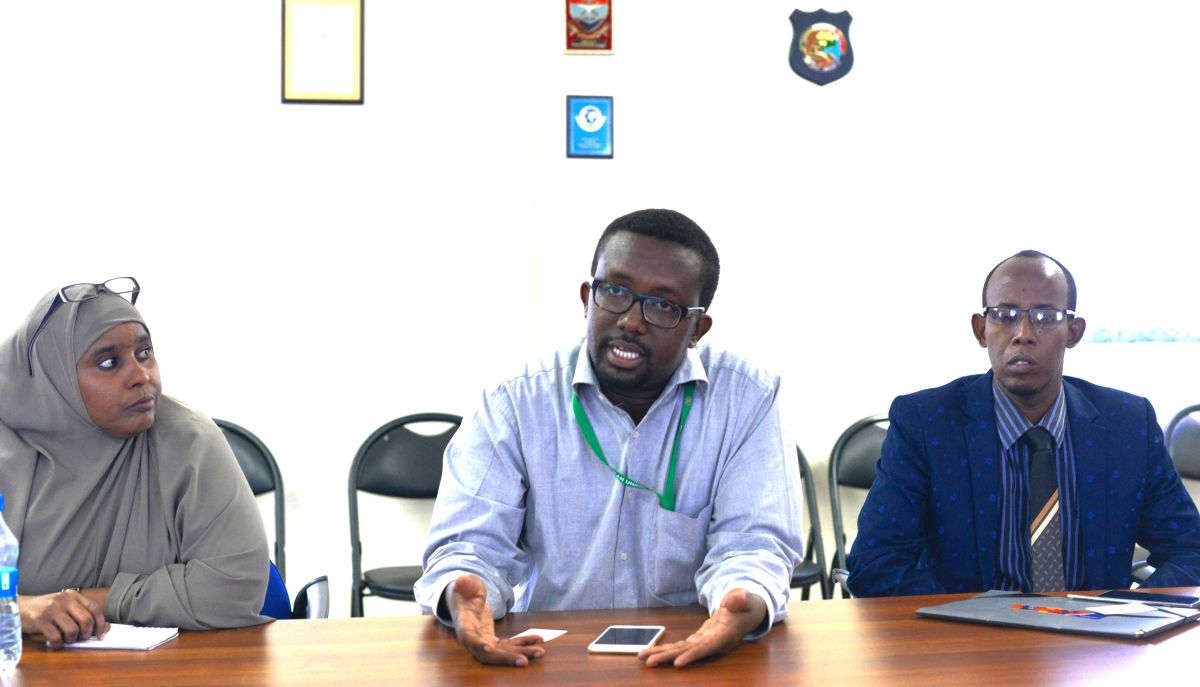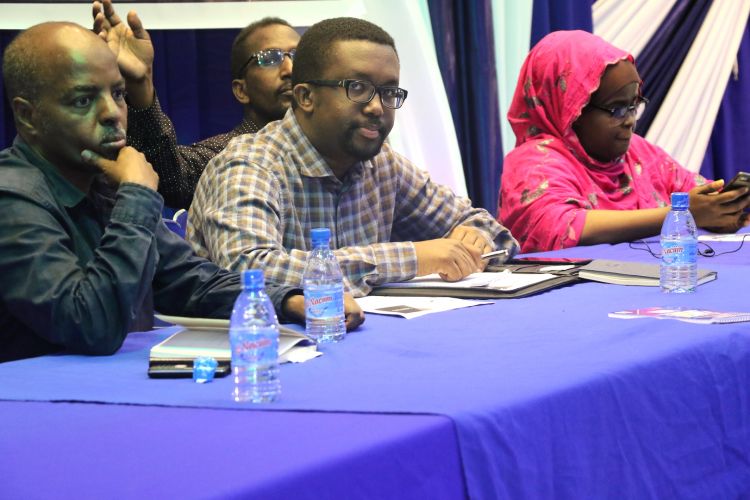
European Parliament condemns attacks on Somali unions
The TUC-backed Federation of Somali Trade Unions (FESTU) has won the support of the European Parliament in its fight for workers’ rights in Somalia.
FESTU has been under sustained attack from forces inside the Somalian government, Islamist terrorists like Al-Shabab, and even shadowy PR groups funded by the UK government.
But thanks to the solidarity of trade unions in Africa and Europe and the endorsement of the International Labour Organisation, FESTU has now secured the support of MEPs.
Landmark resolution
On Thursday 5 July, the EU Parliament unanimously adopted a resolution that strongly condemned “the grave violations of freedom of association and freedom of expression against Somalia’s free and independent trade unions”.
The resolution denounced the repression of trade unionists by the Somali state and called for the government to permit the formation of independent trade unions
It also stated a firm belief that trade unions are indispensable for guaranteeing workers’ rights in Somalia, and asserted that their presence could significantly contribute to improving the security situation there.
The International Trade Union Confederation has welcomed the resolution, with ITUC General Secretary Sharan Burrow calling on the Somali government to implement the ILO decisions and cease the repression against legitimate trade union activities.
Attacks continue
The abuse of worker and trade union rights in the country is well-established, as the third annual report on human and trade union rights in Somalia made clear.
Writing for the TUC to mark the launch of the report, leader of FESTU and the National Union of Somali Journalists, Omar Faruk Osman said:
“Our trade union movement is not the enemy of the government and we totally reject the insinuation that we are “government rejectionists”.
“All we want is our rightful space and our constitutionally and internationally guaranteed rights of freedom of association, freedom of expression and freedom of peaceful assembly.”
Osman also headed a delegation to London in May to meet with global union leaders and UK parliamentarians, including former TUC general secretary John Monks.
When details of this meeting were posted on Twitter , Lord Monks received an email from a former consultant with an FCO-funded PR company.
This email repeated libels about Omar which have already been dismissed in domestic and foreign courts – further legal action is likely.
Time for change
These unjustified attacks on unions and their leaders in Somalia are designed to distract the union movement from its vital task of representing working people in the war-torn, poverty-stricken country.
Hopefully, the government of Somalia and its international friends will now concentrate on tackling terrorism and building space for civil society.
This must include free and independent trade unions, which are the best defence the country can have against a further descent into violence and conflict.

The resolution passed by the European Parliament on 5 July records that:
“I. whereas the rights to free association and unionisation are vital for the development of any functioning democracy; whereas the Federal Government of Somalia effectively does not allow the formation and existence of independent unions; whereas trade union and workers’ rights activists in Somalia face intimidation, reprisals and harassment on a daily basis; whereas stigmatisation and smear campaigns against unionists are commonplace in Somalia; “J. whereas the ILO has adjudicated a freedom of association violation complaint against the Somali Government; whereas the ILO directed the government to ‘recognise the leadership of the NUSOJ and the FESTU under Mr Omar Faruk Osman without delay’; “K. whereas UN human rights experts publicly stated that ‘Somalia is not fulfilling its international human rights obligations and the situation for trade unions keeps on worsening despite specific recommendations made by the International Labour Organisation’s Governing Body, urging the Somali Government to refrain from any further interference in the unions registered in Somalia, with particular reference to the NUSOJ and FESTU’;”And it concludes with three key paragraphs setting out MEPs’ views about the situation in Somalia and what needs to be done. The Parliament:
“7. Strongly condemns the grave violations of freedom of association and freedom of expression against Somalia’s free and independent trade unions and in particular, the longstanding repression against the National Union of Somali Journalists (NUSOJ) and the Federation of Somali Trade Unions (FESTU), and insists on the end of ongoing investigations and closure of the case taken by the Office of the Attorney General against Mr Omar Faruk Osman, Secretary-General of the NUSOJ for organising, without the approval of the Ministry of Information, of a celebration of World Press Freedom Day; “8. Denounces the Somali state’s repression of trade unionists; calls on the Somali state to put an end to all forms of repression against unionists; insists that the government allow the formation of independent trade unions; firmly believes that trade unions are indispensable for guaranteeing workers’ rights in Somalia; asserts that independent trade unions could significantly contribute to the improvement of the security situation in Somalia; “9. Urges the Federal Government of Somalia to respect and uphold the international rule of law, and to accept and implement fully the decisions of the International Labour Organisation (ILO) on case 3113;”Stay Updated
Want to hear about our latest news and blogs?
Sign up now to get it straight to your inbox
